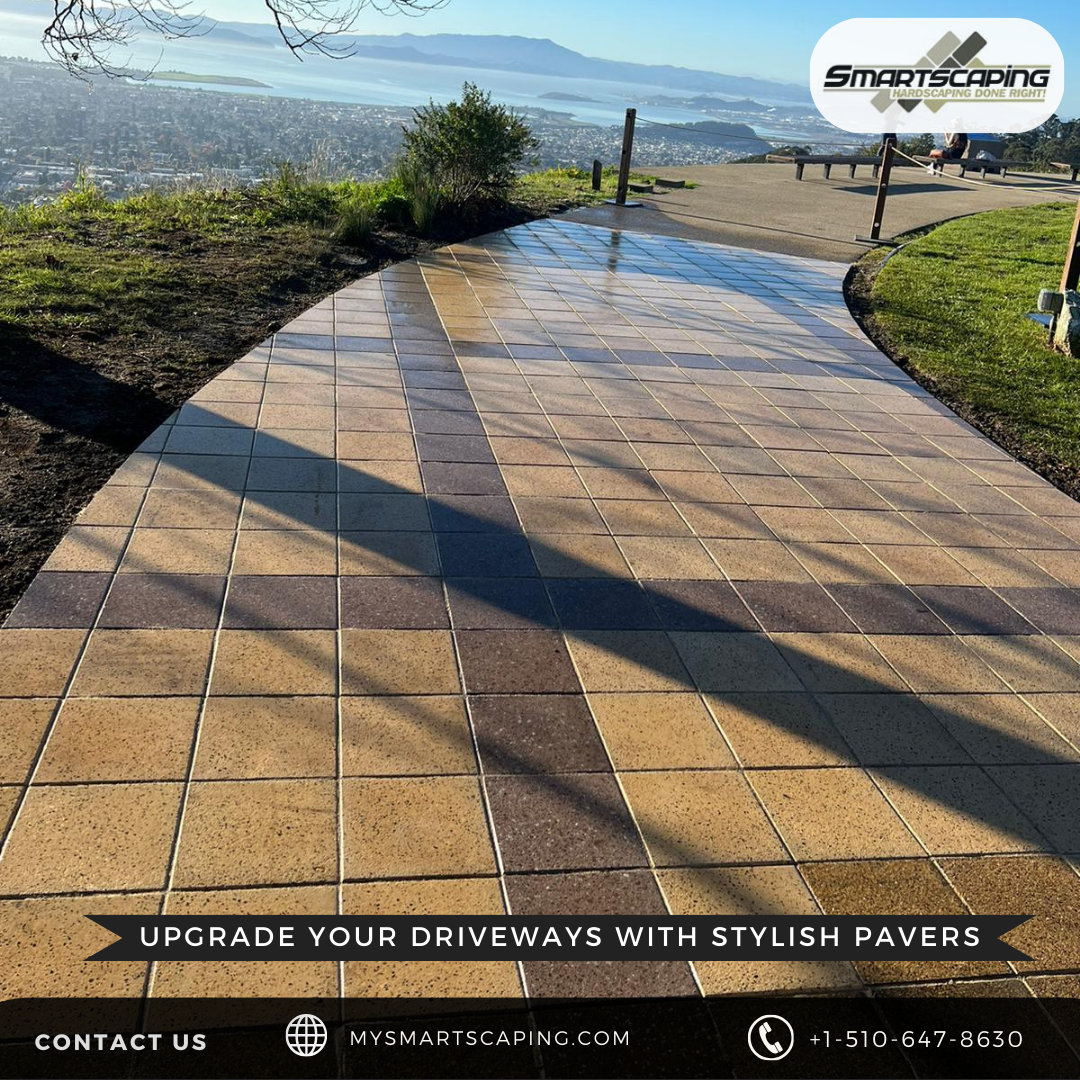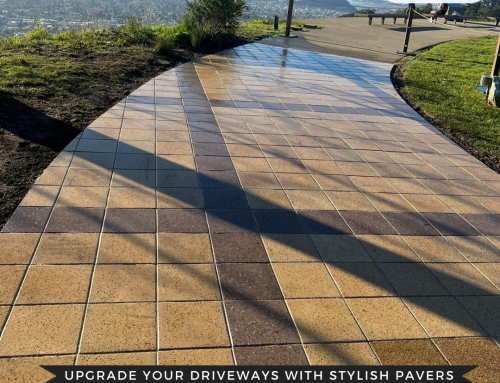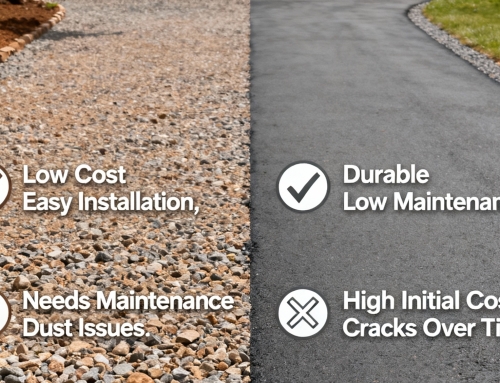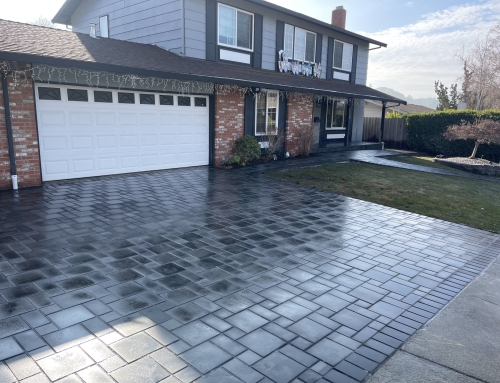When it comes to enhancing your home’s curb appeal and functionality, a well-paved driveway is a game changer. But achieving a durable and aesthetically pleasing driveway requires more than just laying down asphalt or concrete. From proper preparation to determining the right thickness, every step plays a crucial role in ensuring the longevity and quality of your driveway. Here’s a comprehensive guide to help you pave your driveway the right way, with insights from Driveway paving contractors in Berkeley, CA.
What Is the Proper Way to Pave a Driveway?
Paving a driveway involves meticulous planning and execution. Here’s a step-by-step breakdown of the process:
1. Site Evaluation and Planning
- Assess the Area: Examine the driveway site for drainage, slope, and soil conditions. Poor drainage can lead to water pooling, damaging the driveway over time.
- Choose the Material: Asphalt, concrete, pavers, or gravel are popular options. Your choice should align with your budget, aesthetic preferences, and climate conditions.
2. Excavation and Grading
- Clear the Site: Remove existing materials, vegetation, or debris from the area.
- Grade the Surface: Proper grading ensures the driveway slopes slightly for water runoff. A slope of 1-2% is typically recommended.
3. Sub-Base Installation
- Lay the Sub-Base: The sub-base serves as the foundation of your driveway. Use crushed stone or gravel, compacting it to create a stable and even surface.
- Compaction is Key: Using a vibratory roller or plate compactor, ensure the sub-base is well-compacted to prevent shifting or settling over time.
4. Paving the Driveway
- Apply the Base Layer: For asphalt driveways, start with a base layer of coarse asphalt. For concrete or pavers, begin with a solid base that meets the required thickness.
- Install the Surface Layer: Lay the final layer of asphalt, concrete, or pavers. Ensure smooth application, filling gaps or uneven spots promptly.
5. Edging and Finishing Touches
- Secure the Edges: Proper edging prevents crumbling and adds structural integrity to the driveway.
- Curing Time: Allow the driveway to cure for the recommended time before use—typically 24-48 hours for asphalt and 7 days for concrete.
How to Prepare a Driveway for Paving?
Preparation is the foundation of a successful driveway paving project. Without proper groundwork, even the highest-quality materials can fail prematurely. Here’s how to prepare your driveway for paving:
1. Inspect and Plan
- Survey the Area: Identify potential obstacles like tree roots, underground utilities, or drainage issues.
- Obtain Permits: Ensure compliance with local building codes and obtain necessary permits before starting.
2. Mark and Excavate
- Define the Driveway Boundaries: Use stakes and string to mark the desired layout.
- Excavate to the Required Depth: The depth depends on the material and sub-base thickness. Generally, 8-12 inches is excavated to accommodate the layers.
3. Address Drainage Needs
- Install Drainage Systems: If your area experiences heavy rainfall, install French drains or other drainage solutions to prevent water pooling.
- Ensure Proper Grading: A well-graded driveway directs water away from your home, reducing erosion and structural damage.
4. Prepare the Sub-Base
- Choose the Right Material: Crushed stone or gravel is ideal for creating a stable sub-base.
- Compact the Sub-Base: Use professional-grade equipment to achieve a firm and even surface. This step is vital for preventing cracks or depressions in the finished driveway.
How Thick Should a Paved Driveway Be?
The thickness of a paved driveway depends on several factors, including the material used, the expected load, and soil conditions. Here’s a breakdown:
1. Thickness for Asphalt Driveways
- Base Layer: A 4-6 inch thick base layer of compacted gravel or crushed stone is recommended.
- Asphalt Layer: The asphalt layer should be 2-3 inches thick for residential driveways. For heavy-duty or commercial use, 4-6 inches is ideal.
2. Thickness for Concrete Driveways
- Sub-Base: A 4-6 inch compacted gravel sub-base is necessary.
- Concrete Slab: The concrete layer should be at least 4 inches thick for cars and light vehicles. For heavier loads, a 5-6 inch slab is more appropriate.
3. Thickness for Paver Driveways
- Sub-Base: A compacted sub-base of 6-8 inches is required for stability.
- Paver Layer: The pavers themselves are typically 2-3 inches thick, with a 1-inch sand bed beneath them for leveling.
Why Hire Professional Driveway Paving Contractors in Berkeley, CA?
While DIY driveway paving might seem cost-effective, hiring professionals ensures a durable and aesthetically pleasing outcome. Here’s why you should consider local experts:
1. Expertise and Experience
Driveway paving contractors in Berkeley, CA, bring years of experience and technical knowledge. They understand the unique soil and climate conditions of the area, tailoring their methods accordingly.
2. High-Quality Materials
Professionals source premium materials that ensure durability and longevity. They can also guide you in choosing the best materials for your specific needs and budget.
3. Advanced Equipment
Contractors use industry-grade equipment for excavation, grading, and compaction, delivering results that are difficult to replicate with DIY tools.
4. Time and Cost Efficiency
With a professional team, your project is completed efficiently and within budget, avoiding costly mistakes or delays.
5. Warranty and Support
Reputable contractors offer warranties on their workmanship, giving you peace of mind and ongoing support if any issues arise.
Tips for Maintaining Your Paved Driveway
Once your driveway is paved, proper maintenance ensures it stays in top condition for years. Here are some tips:
1. Regular Cleaning
Remove debris, leaves, and dirt regularly to prevent stains and erosion.
2. Seal Coating
For asphalt driveways, apply a seal coat every 2-3 years to protect against UV rays, water damage, and cracks.
3. Prompt Repairs
Address cracks, potholes, or drainage issues immediately to prevent further damage.
4. Avoid Heavy Loads
If your driveway wasn’t designed for heavy vehicles, avoid parking large trucks or machinery on it.
5. Seasonal Care
In colder climates, use driveway-safe de-icers during winter to prevent surface damage.
Why Choose Driveway Paving Contractors in Berkeley, CA?
Berkeley is home to some of the best paving contractors who combine expertise with a deep understanding of local needs. Whether you’re paving a new driveway or upgrading an existing one, these professionals ensure top-notch results.
Local Knowledge Matters
- They understand Berkeley’s soil and weather conditions, tailoring their methods for maximum durability.
- Local contractors are familiar with permitting processes, saving you time and hassle.
Community-Centered Approach
Reputable contractors in Berkeley prioritize customer satisfaction and maintain strong community ties. Hiring locally supports the economy and ensures personalized service.
Conclusion
Paving a driveway is a significant investment that requires careful planning and execution. By understanding the proper way to pave, preparing the site correctly, and ensuring the appropriate thickness, you can achieve a durable and visually appealing result. For residents in Berkeley, partnering with experienced Driveway paving contractors in Berkeley, CA, ensures your project is in the best hands.
Invest in quality, prioritize proper methods, and enjoy the benefits of a well-paved driveway that enhances your home’s value and functionality for years to come.







